Quicklinks
Sitemap | Accessibility Statement
© 2025 Massachusetts Innovation Career Pathways. All rights reserved. Web Design by Tomo360
In February of 2025, Secretary of Education, Patrick Tutwiler, and Governor Healey visited Athol High School’s Innovation Career Pathways program as part of their “Reimagining High School” initiative to support public schools to enable students to see the connection between what they are learning and what they will need to know in the future. “In the Athol classroom, I saw personalization, deep engagement, and collaboration, which are meaningful for students to experience in high school”, said Tutwiler.
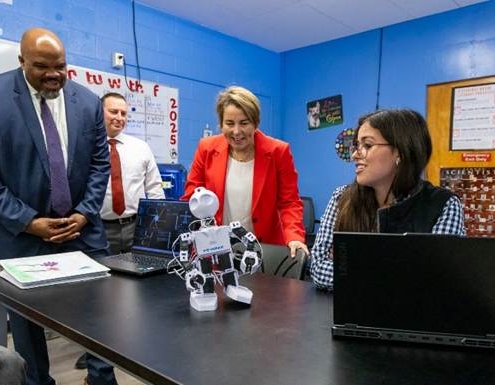
Secretary of Education, Patrick Tutwiler, and Governor Healey with Athol High School student
Rennie Center highlighted our website as a Model STEM Program Adaptable, Ready-to-Use Resource in the their guide: STEM Internships & Work-Based Learning Opportunities in Massachusetts: A Landscape Analysis. See page 16 of the guide for the full write up.
On January 16, 2025, during her State of the Commonwealth Address, Governor Healey talked about the success of the Massachusetts Innovation Career Pathways program. The speech including a story about Haris Mukanga, a graduate of the pathways program at Burlington High School, who is currently a Computer Science major at UMass Lowell and a part-time store manager at Courtside Kicks where he developed an app as part of his pathway’s internship.
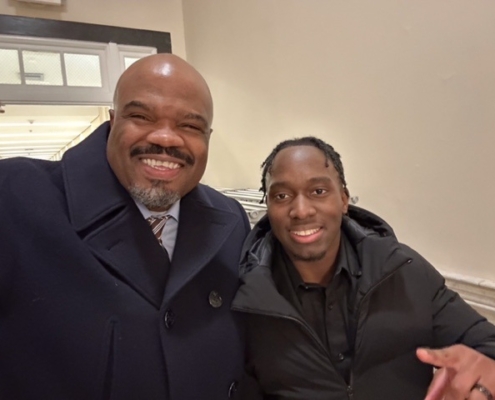
Secretary of Education, Patrick Tutwiler, and Burlington High School Graduate, Haris Mukanga.
In November 2024, we hosted an in-person MAICP/MyCAP convening at the Leicester High School. There were 59 educators from 22 schools in attendance to network, learn, and connect. The event included an optional tour of the Leicester High School Innovation Career Pathways facilities.
As one attendee said:
“I go to many events like this, but this was so worthwhile. Presentations were helpful and purposeful and we left with great ideas that we can make applicable to our plans and programs.”
(Mike Lucas, Superintendent, Oxford Public Schools)
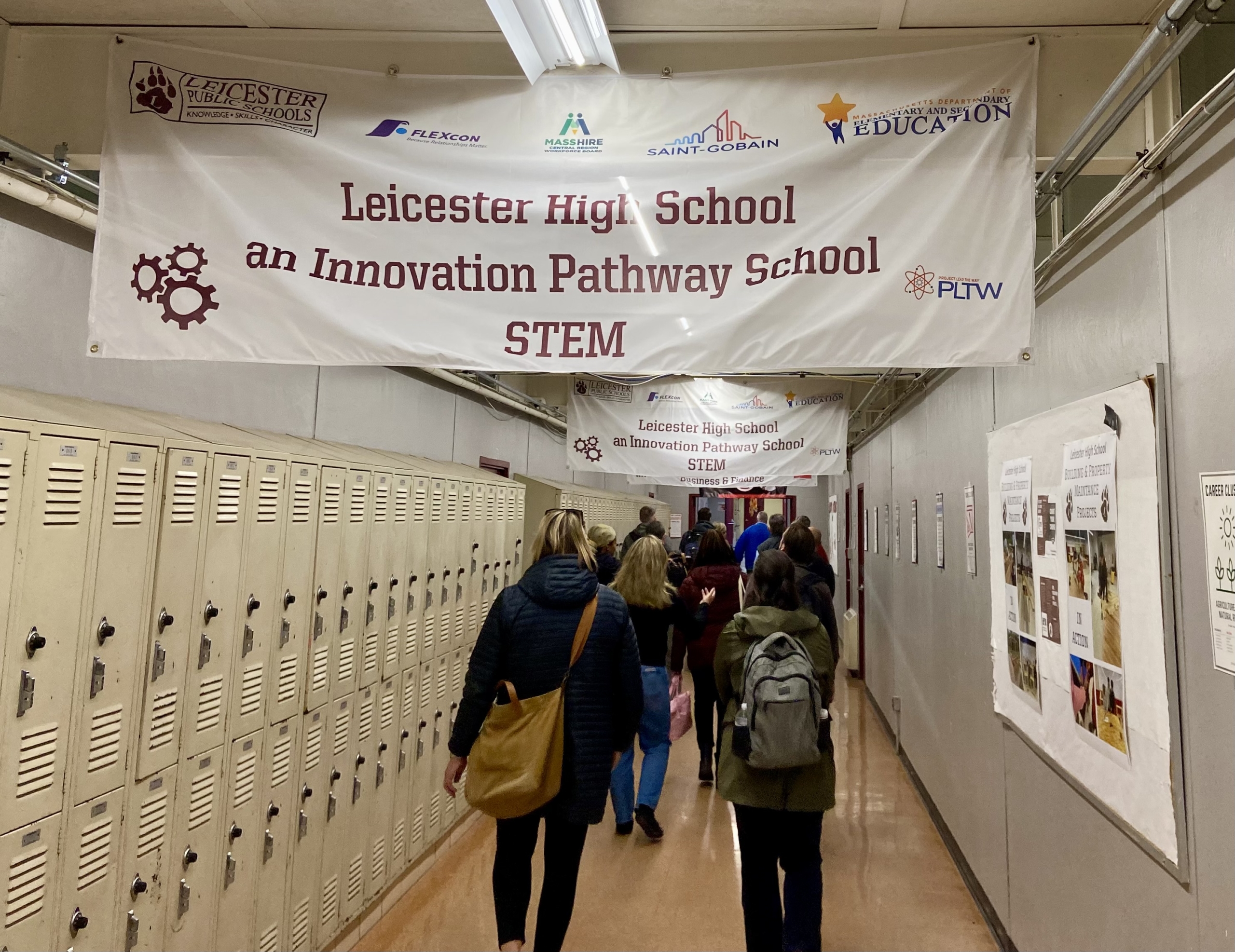
This brief presents the most current analyses from the Massachusetts Department of Elementary and Secondary Education (DESE) on Innovation Career Pathways. The Commonwealth launched Innovation Career Pathways (ICP) as part of its suite of High-Quality College and Career pathways in autumn of 2018. ICP aims to provide students with a supportive and rigorous academic experience and career development that is relevant to their interests, so that they may graduate high school with a well-designed postsecondary plan.
Under the supervision of the DESE Office of Planning and Research, the efficacy of the ICP program has been investigated over the last few years. Overall, analyses show statistically significant and positive impacts of the ICP program in immediate college enrollment (i.e., within 6 months of participation) and second year persistence in college – particularly for Black, Latinx, and low-income students. This edition of the OPR newsletter offers a synthesis of the findings to date.
This report from Advance CTE shares the successes and challenges of sustaining the work of the New Skills for Youth Initiative (NSFY) to transform career readiness education and bridge skills gaps for youth through innovative strategies including Massachusetts Innovation Career Pathways. The report credits MAICP and MyCAP for expanding the access of Massachusetts students to high quality college and career readiness programming, and gives recommendations for action steps to sustain career pathways over the long term.
This report, prepared by the Innovation Career Pathways team at the Center for Collaborative Education, reviews the technical assistance provided by CCE to the community of practice in the first three years of partnership with DESE, 2019-2022. The report describes how we have worked to forge relationships with school staff and external partners in order to design and facilitate productive learning opportunities to meet the needs of the community of practice. It addresses assets and challenges encountered in pathway design and implementation, and is a helpful resource to those of you beginning the process of applying for designation, as well as longer-term designees. CCE is proud of the productive and collaborative network developed in service of Innovation Career Pathways, and we look forward to continuing to support its growth as more schools join the community of practice.
This short video features student participants in Innovation Career Pathways in several different broad industry sectors speaking about what they experienced and how it has influenced their post-high school plans for education and career.
Media error: Format(s) not supported or source(s) not found
Download File: https://maicp.org/wp-content/uploads/2024/04/Innovation-Pathways-Introduction.mp4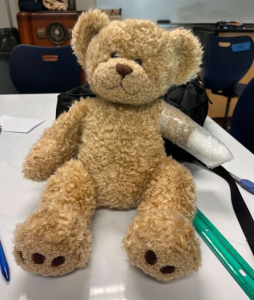
A student at Carver Middle High School created this prosthetics design as a project for the Advanced Manufacturing Pathway (known in Carver as the Manufacturing Engineering and Technology Pathway). The projects that students work on as part of pathway programs are based on industry-aligned, real-world challenges. For this project, students are assigned a random animal that has been left crippled or amputated and they go through a prosthetic design process. The projects that students work on as part of pathway programs are based on industry-aligned, real-world challenges.
Students in the Advanced Manufacturing Pathway (known in Carver as the Manufacturing Engineering and Technology Pathway) participate in showcases where they model their projects for parents and other visitors. Their instructional model is project, real-world, and place-based, with a balance of individual student effort and accountability to a team or collaborative pursuit.
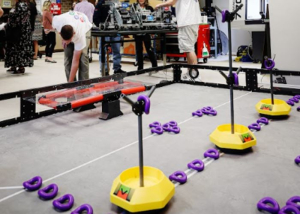
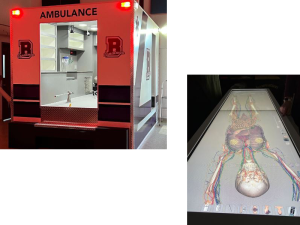
Carver Middle High School’s Advanced Manufacturing Pathway (known in Carver as the Manufacturing Engineering and Technology Pathway) includes robotics and coding courses as shown in this video of an “early” robotics project. Students learn to work with all different types of machines such as 3-D printers and laser cutters, and learn different techniques for designing and building these projects.
For their Environmental & Life Science Pathway, Bourne High School has created an Aquaponics Lab to provide hands-on learning in sustainability. Participation in pathway programs such as this helps students gain awareness of future employment opportunities, and develop technical and academic readiness for success in the industry of their interest.
Carver Middle High School’s Advanced Manufacturing Pathway (known in Carver as the Manufacturing Engineering and Technology Pathway) includes robotics and coding courses as shown in this video of an “early” robotics project. Students learn to work with all different types of machines such as 3-D printers and laser cutters, and learn different techniques for designing and building these projects.
Media error: Format(s) not supported or source(s) not found
Download File: https://maicp.org/wp-content/uploads/2024/04/Robot.mp4?_=1Scituate High School prepared a overview presentation of the success of their Innovation Career Pathways program in Business and Finance (Business Education).
Sitemap | Accessibility Statement
© 2025 Massachusetts Innovation Career Pathways. All rights reserved. Web Design by Tomo360